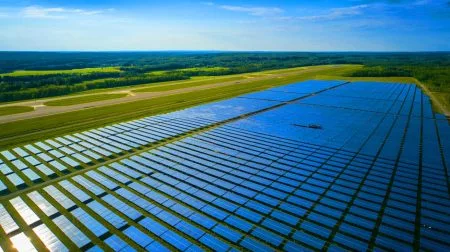| IN A NUTSHELL |
|
The discovery of vast quantities of natural hydrogen beneath the Earth’s surface presents an exciting opportunity for the global energy sector. Recent findings suggest that this untapped resource could potentially meet the world’s energy needs for nearly two centuries. However, tapping into this resource requires overcoming significant challenges. This article delves into the potential of natural hydrogen, the obstacles to its exploitation, and the promise it holds for a sustainable energy future.
The Enormous Potential of Natural Hydrogen
According to a groundbreaking study published in Science Advances, there are hundreds of billions of tons of gaseous hydrogen trapped in underground reservoirs and rocks. This is a staggering 26 times the volume of known global oil reserves. If accessed, this hydrogen could power the world for approximately 200 years. The study, conducted by geologists Geoffrey Ellis and Sarah Gelman from the US Geological Survey, estimates that the Earth’s subsurface contains between 1 billion and 10,000 billion tons of natural hydrogen. However, only a small fraction—around 2%—is currently considered accessible for extraction. This accessible hydrogen alone is equivalent to twice the world’s proven natural gas reserves, offering a massive opportunity to reshape the energy landscape.
Challenges in Extracting Natural Hydrogen
The potential of natural hydrogen is immense, yet several obstacles hinder its exploitation. The primary challenge lies in developing economically viable extraction methods. Much of the hydrogen is located at inaccessible depths or in regions where extraction is not currently profitable. As the report suggests, while it took over a century for oil resource exploitation to mature, advancements in technology could accelerate the development of hydrogen extraction methods. The pace of progress will largely depend on the investment in exploration and production strategies. Overcoming these challenges is critical to making hydrogen an attractive option for investors and a viable part of the global energy supply.
Hydrogen: A Self-Replenishing Resource?
One of the intriguing aspects of natural hydrogen is its potential for self-replenishment. Geological processes, such as the interaction between water and certain underground minerals, continuously produce hydrogen. This phenomenon suggests that the rate of natural hydrogen production could surpass the rate of extraction. The study highlights a 94% probability that the subsurface hydrogen supply will exceed future extraction capacity by 2100, with a 75% probability of this continuing beyond 2200. Additionally, there is potential to artificially enhance this natural generation in specific environments, further increasing the resource’s sustainability.
The Future of Natural Hydrogen in Global Energy
Natural hydrogen presents a promising avenue for achieving a more sustainable energy future. Its abundant reserves and potential for continuous replenishment could significantly reduce reliance on fossil fuels. However, realizing this potential requires substantial investment in research and development. The energy sector must focus on creating efficient extraction technologies and establishing a market for natural hydrogen. As the world seeks to transition to cleaner energy sources, natural hydrogen could play a crucial role in diversifying energy supplies and reducing carbon emissions. The key will be balancing the pace of technological advancement with the level of investment and policy support.
In conclusion, the discovery of natural hydrogen offers a glimpse into a cleaner, more sustainable energy future. While challenges remain in its extraction and commercialization, the potential benefits are too significant to ignore. As we move forward, how will the energy sector adapt to harness this vast resource, and what role will natural hydrogen play in shaping the energy landscape of tomorrow?
Did you like it? 4.4/5 (23)








Wow, 200 years of energy! Does this mean we’re finally moving away from fossil fuels for good? 🌍
What are the environmental impacts of extracting this natural hydrogen? Is it truly clean? 🤔
So, is this the end of the oil era? Can’t wait to see how this changes things. 🚀
Is this technology already in use or still in the research phase?
How soon can we expect to see natural hydrogen being used on a large scale?
This sounds amazing, but isn’t hydrogen highly flammable? How safe is its extraction? 🔥
Great article, thanks for sharing this revolutionary news! 😊
Is there any estimate on the cost of extracting natural hydrogen compared to traditional fuels?
What regions are the most promising for hydrogen extraction?
Are there any countries already investing in this technology?
Can this natural hydrogen be used in existing hydrogen fuel cells?
Why haven’t we heard more about this before? Sounds like a game-changer.
Could this lead to hydrogen-powered cars becoming more affordable? 🚗💨
Any chance this could create jobs in the energy sector?
Impressive potential, but how realistic is the timeline for development?
Is the hydrogen extraction process environmentally friendly? 🌱
What are the main obstacles to making this a reality?
Are there any pilot projects currently underway?
So does this mean hydrogen energy could be cheaper than solar or wind?
Why is only 2% of the hydrogen currently accessible for extraction?
How does this compare with other renewable energy sources?
It sounds exciting, but what if the extraction methods aren’t developed in time?
Does this mean we could see a drop in energy prices in the near future?
How does the hydrogen extraction process impact local communities?
What role do governments play in advancing this technology?
Are there any risks of geological disturbances during extraction?
I’m curious about the reliability of the data. How accurate are these estimates?
Would love to see a follow-up article on how this technology is progressing! 📈
With this much hydrogen, could we export energy to other planets? 😂
Why isn’t this getting more attention in the mainstream media?
Thanks for the info! Gives me hope for a cleaner future! 🌍
Any insights into how this could affect global geopolitics? 🤔
Could this discovery help reduce our carbon footprint significantly?
What are the next steps for making this a reality?